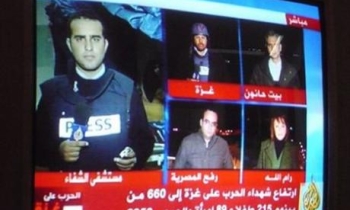Turkey continues to use the judicial system to curb free expression. Journalists are still being charged under Article 301 of Turkey's Penal Code, which makes "insulting Turkishness" a crime punishable by prison terms. In the first six months of this year, 451 people were involved in 94 trials for using their right to freedom of expression out of which 17 were under Article 301.
The controversial article was introduced in 2005 as part of a package of penal law reforms in the process preceding the opening of negotiations for Turkey’s membership of the European Union (EU), in order to bring Turkey up to the standards of EU. Since then hundreds of cases have been registered against journalists on the grounds of “insulting Turkishness.†Turkish rights groups, including BIANET and the Initiative for Freedom of Expression, have been reporting on the numerous trials and actively campaigning to abolish the law.
A few weeks back, Haci Bogatekin, owner of the local paper Gerger Firat in Adiyaman, southeastern Turkey, was accused under Article 301 for his March 2007 article titled "Turkey has made mistakes". Bogatekin blamed the state for the deaths of "millions of Armenians and Syriac Christians," and other ethnic and religious groups across the country.
Last month, a penal court in Istanbul decreed that writer and film director Umur Hozatli had "insulted the state security forces in the press" and sentenced him to a six-month imprisonment term. This was then reduced to five months, and the sentence was converted to a 20 New Turkish Lira fine per day, which results in a total of 3,000 New Turkish Lira (approximately 1,770 euros). In an article titled "Irritating Men", written for the newspaper Ülkede Özgür Gündem, he had criticised the police and the judiciary system. The article was published on November 11, 2006.
On September 21, the Kocaeli Second Penal Court sentenced cartoonist Muhammet Sengöz to 11 months and 20 days' imprisonment for a satirical cartoon published in the Free Kocaeli newspaper. Kocaeli is a province to the east of Istanbul. The cartoon was a response to billboards that Karaosmanoglu had put up around the city to praise his achievements. A constant theme on the billboards was a person asking, "What's next, Mayor?" In Sengöz's cartoon, a man with his back to the reader and with his trousers down asks, "Who's next, Mayor?"
The newspaper's editor, Ali Gündogdu, found the fact that a case was opened worrying in itself: "Those who feel uncomfortable [with humorists] are trying, like Prime Minister Recep Tayyip Erdogan Erdogan and the whole higher echelon of the Justice and Development Party (AKP), to use the courts to intimidate the press and humorists."
The prosecutor argued that the cartoon, published on July 21, did not contain an insult, but that it was instead a criticism. Sengöz himself said at the trial: "My caricature is a citizen's protest." The municipality's lawyer, however, insisted on punishment. Several other cases like this one point towards the repressive conditions of press in Turkey
Every six months, the Human Rights Association (IHD) publishes a report on rights violations. According to the report pertaining to the first six months of 2007, 451 people were involved in 94 trials for using their right to freedom of expression out of which 17 were under Article 301 of the Turkish Penal Code ("degrading Turkishness, the Republic, the State or its institutions"). IHD noted that these statistics " prove that, compared to recent years, there has been no improvement in the area of freedom of expression". IHD also called attention to the fact that the Özgür Gündem newspaper has been closed four times this year.
In a short span, the disruptive Article 301 has gathered lot of attention in international media scenario. Novelist Elif Åžafak claims the Article has a chilling effect on free expression, notwithstanding its fourth clause. Human rights watchdog group Amnesty International claims that "Article 301 poses a direct threat to freedom of expression, as enshrined in Article 19 of the International Covenant on Civil and Political Rights (ICCPR).â€
Last month, International PEN, ARTICLE 19 and IPA issued an open letter to the newly-elected President of Turkey Abdullah Gül calling for the abolition of Article 301. Turkish Foreign minister Ali Babacan also said, “Article 301 has become a brand, famous worldwide and it got stuck on us.†He added: “Amending Article 301 would not be enough. Ten or 15 law articles need amending too. "Swedish Foreign Minister Carl Bildt has quoted that Article 301 caused too many problems and that they hoped Turkey would act like other European countries.
A ray of hope for the Turkish media has risen with the AKP government rewriting the constitution of Turkey, as chances are that the infamous Article 301 may be removed. The draft requires the abolishment of laws and articles that contradict international agreements that Turkey is a part of. During the review, the constitutional court may remove the article on the grounds that it is in violation of the European Human Rights Agreement.









